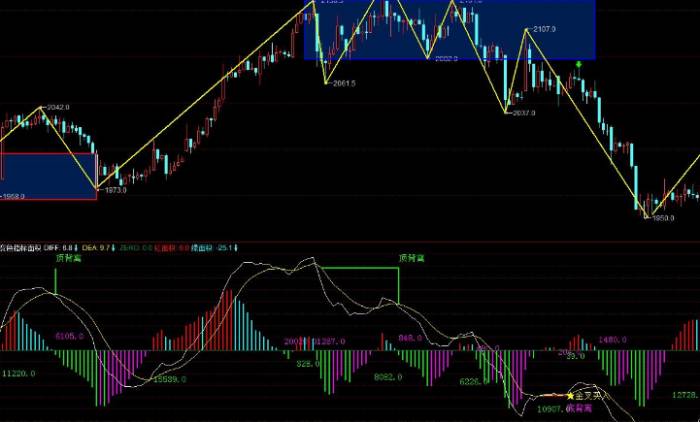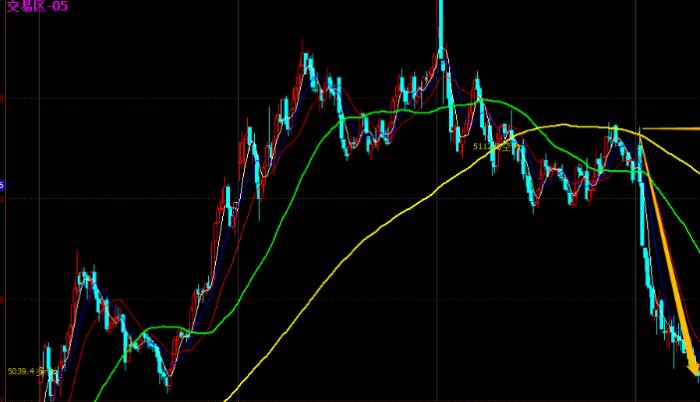Both his followers and fiercest rivals have to admit that as the biggest myth on Wall Street in the 20th century, Jesse Livermore is one of the most outstanding financial operators to date. With his unique insights, he has discovered what works and what doesn't in the market, pointing out a clear path for countless traders.
Today, the editor will review several major "soul" investment principles mentioned by Jesse, hoping to bring some inspiration to readers.
1. The regularity of the market stems from the unchanging human nature
"I learned a lesson early on - there is nothing new on Wall Street. Because speculation is as old as the hills, what happens in the market today has happened before and will happen again in the future, because human nature never changes." Jesse once said that this is the reason why the market is highly regular.
For speculators, compared to the market and opportunities, the biggest enemy is the inability to control their emotions. Because hope, fear, and greed always exist, they are hidden in your hearts. They are waiting outside the market, waiting to jump into the market to perform, or waiting for the opportunity to make a big profit... Therefore, people always repeat their behaviors in the same way, which is why those numbers composed of patterns and trends always appear unchanged.
2. Wait patiently for the real opportunity in the market, do not make predictive interventionsTrading is not something that needs to be done every day. Those who believe that trading should be done at all times have overlooked one condition: trading requires a reason, and it must be an objective and appropriate reason.
In addition to figuring out how to make money, traders must also try to avoid losing money. Knowing what to do is almost as important as knowing what not to do. Generally speaking, Jesse believes that everything should be done at the right time, and one should only enter the market when the omens are favorable and satisfactory to one's own operations. In fact, no one has enough knowledge to operate wisely every time, and the real trend often requires waiting and observation.
3. Right is right, and wrong is wrong. Only do the right things, and don't make mistakes on top of mistakes.
A highly talented speculator once told Jesse, "When I see a dangerous signal, I usually don't argue with it. I avoid it. A few days later, if everything still looks good, I come back." Jesse believes that this statement vividly demonstrates a kind of speculative wisdom.
The trouble most speculators encounter is that they always lack the courage to close their positions when they should; they hesitate and watch helplessly as the market moves many points in a direction unfavorable to them while they are indecisive. Obviously, interpreting the market is an important part of this game.
It is important to stop losses when making wrong operations, and it is also important to firmly believe in one's own operations.
4. Losses are the cost of trading, and one must learn enough lessons from failures.
No matter how experienced a trader is, the possibility of making mistakes and losing trades always exists. Because speculation cannot be 100% safe. There is nothing in the world that teaches you what not to do better than losing everything. Only when you know what not to do to avoid losing money will you seriously learn what to do to make a profit.5. Control Your Trading and Manage Your Capital
Never engage in any trade unless you know it is financially secure. The plight of inexperienced speculators often lies in paying too much for each position. When a speculator manages his own capital, the desire to "always win" is his biggest enemy, which will eventually lead to disaster.
Remember, in the market, time is not money; time is time, and money is money.
6. The Biggest Enemy of Investors Is Not the Market, but Themselves
Many people who make the right judgment at the right time start buying or selling when the price is exactly at the level where the maximum profit should be, but they do not really make money from it.
The reason is that a person may see clearly and distinctly, but when the market is leisurely and preparing to go in the direction he believes it will definitely go, he becomes impatient or doubtful. The market did not defeat them; they defeated themselves. No fluctuation, no trade. No one can catch all the ups and downs of the market. In a bull market, your approach is to buy and hold on until you believe the bull market is about to end.
7. Investing Requires Continuous Effort, Dedication, and ReflectionOutstanding traders should, like well-trained professional athletes, develop good living habits and maintain ample physical strength, for there is no battlefield more intense and exciting than the market.
The success of traders is usually proportional to the sincerity and loyalty demonstrated in their efforts, which include persisting in keeping their own market records, thinking independently, and drawing conclusions. After all, no one can make a fortune by relying on others. Everything has two sides, but the market has only one side, not the bullish or bearish side, but the correct side. And in the investment market, there is only one path to success for us, which is to strive, strive, and strive again.





























